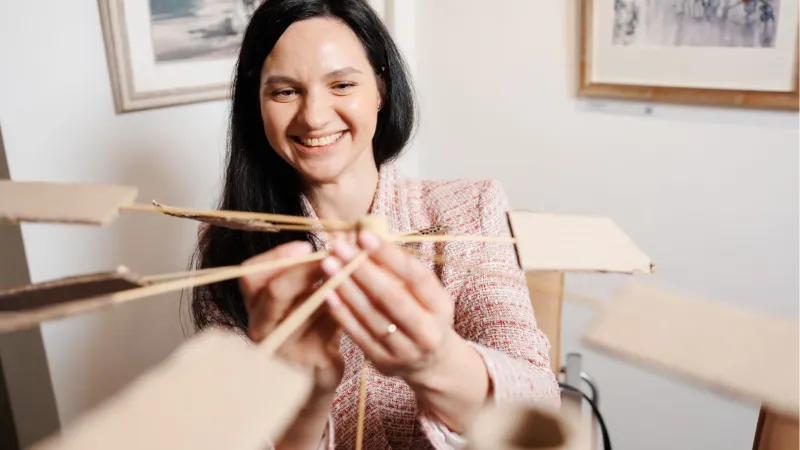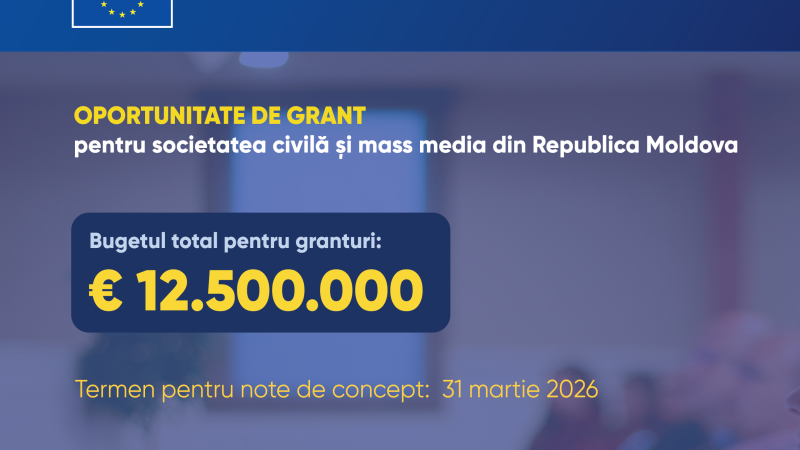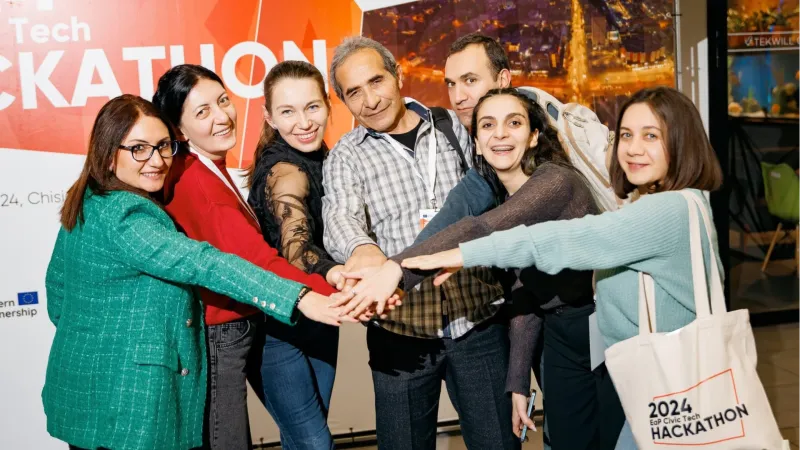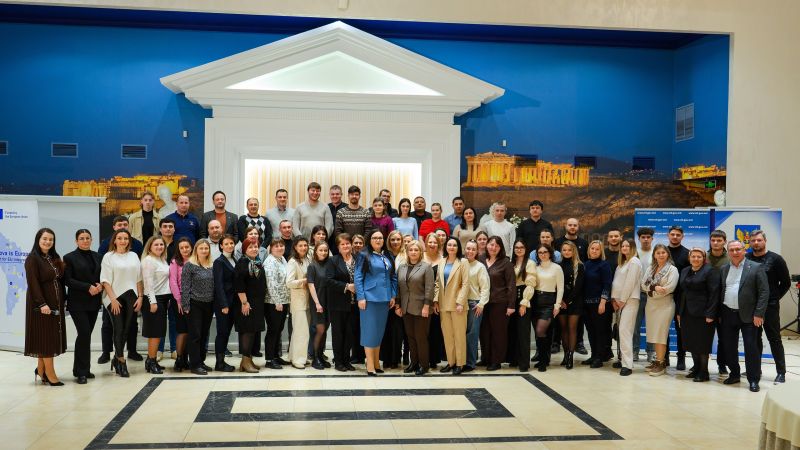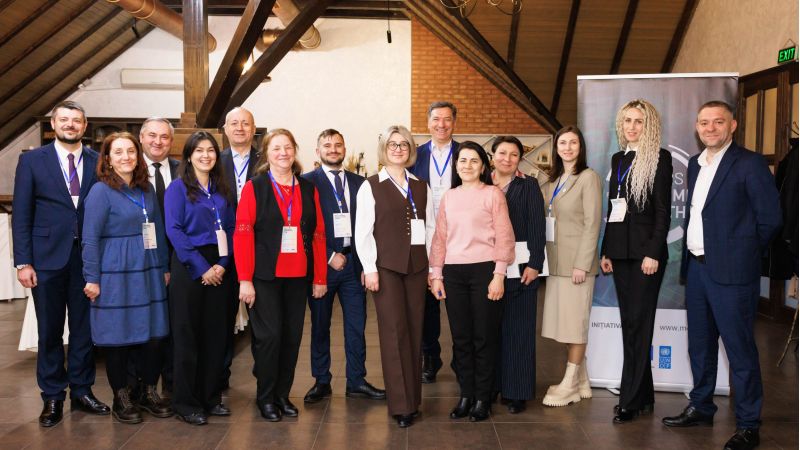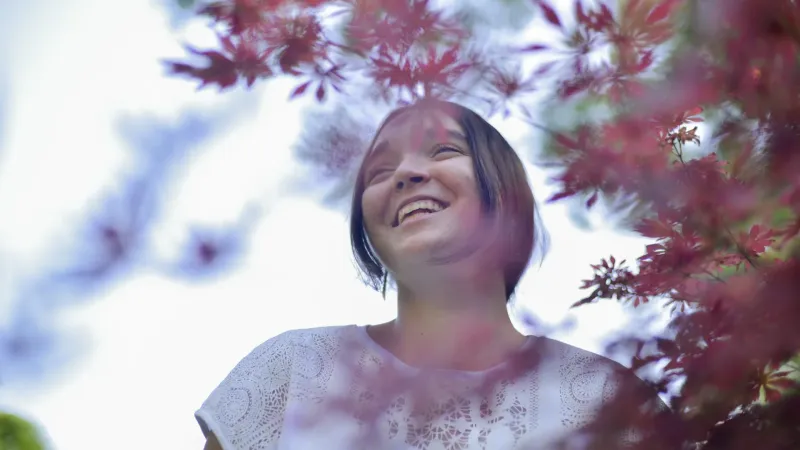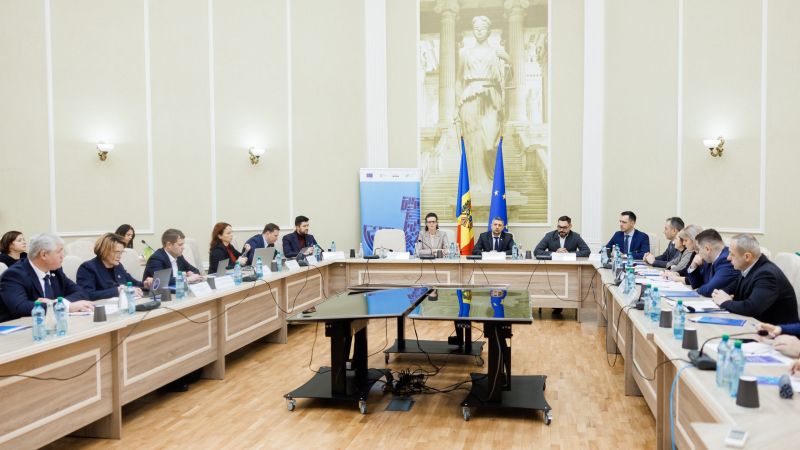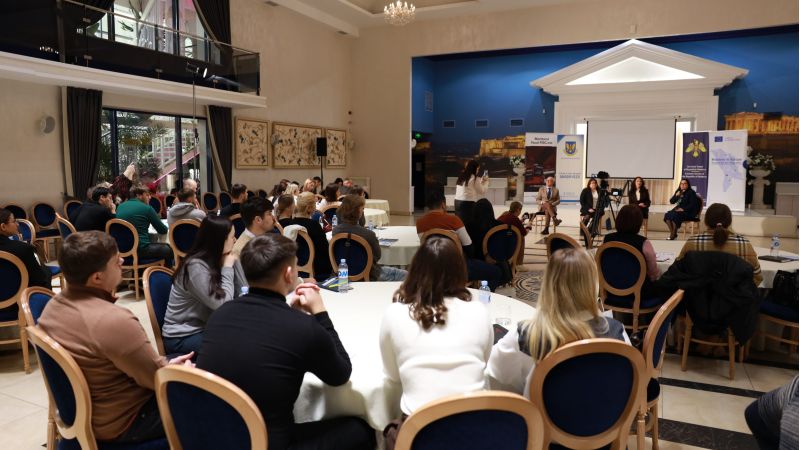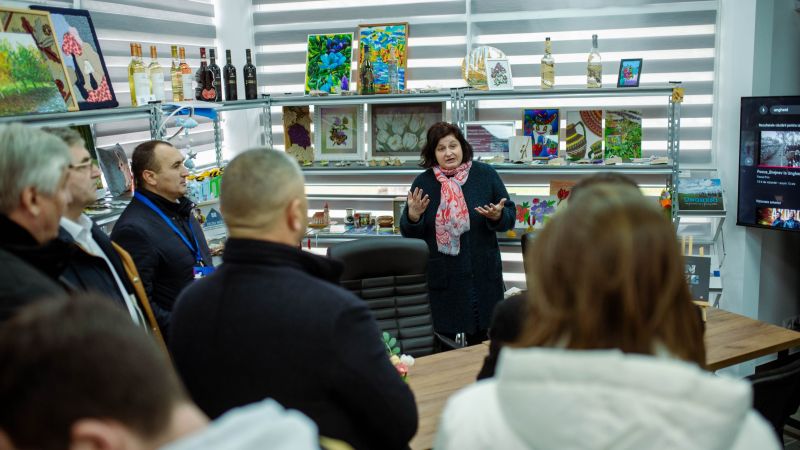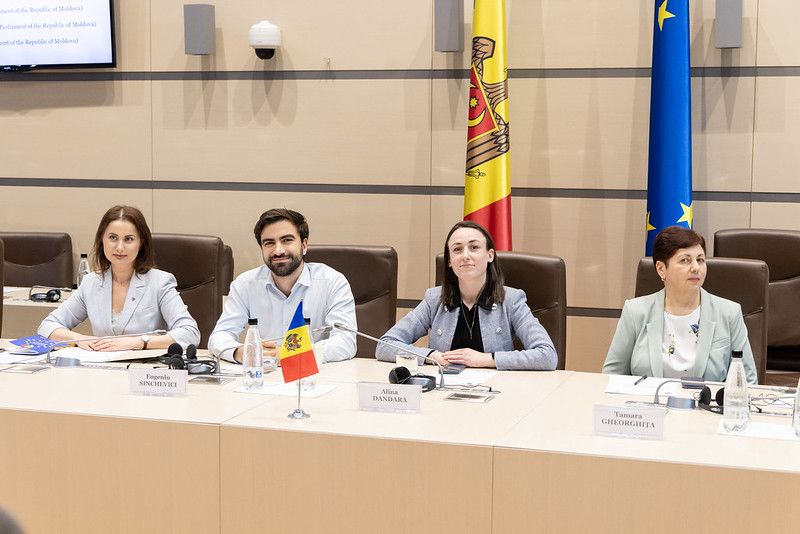
Parliament of Moldova Convenes Two High-Level Roundtables on EU Accession and Youth Engagement
As part of the Twinning Project “Strengthening the Capacities of the Moldovan Parliament and its Role in the EU Accession Process,” the Parliament of the Republic of Moldova hosted two roundtable discussions, bringing together Members of Parliament from Moldova and EU Member States, students, and youth representatives. These discussions, held in the European Hall of the Parliament, addressed key issues related to citizen engagement and youth involvement in the European integration process, providing a platform for substantive political dialogue and the exchange of best practices.
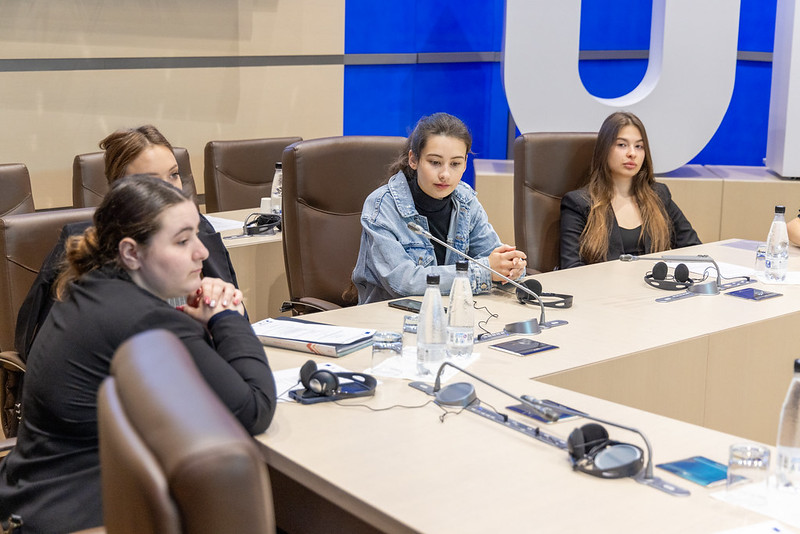
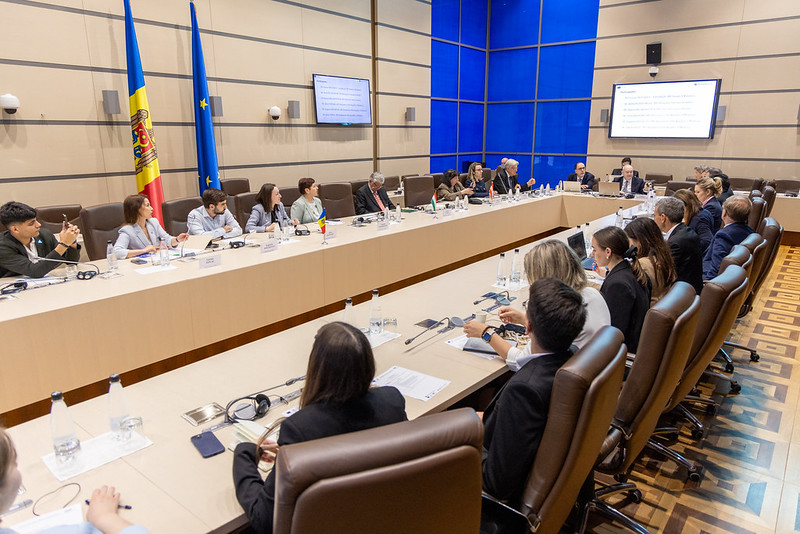
The first roundtable, titled “Citizens First: Making EU Integration a Shared Journey – How parliaments can engage, inform, and inspire public trust in the accession process” opened with remarks from Ms. Ina Coșeru, Chair of the Committee on Foreign Policy and European Integration, who underscored the urgent need for effective and transparent communication between public institutions and citizens, particularly in the context of Moldova’s EU aspirations. She emphasized that citizens must be included in the European journey, not only as passive observers but as active contributors. Mr. Vasilios Svolopoulos, Project Leader from the Hellenic Parliament, who moderated the event, framed the discussion around the growing demand for democratic accountability and the role of national parliaments in shaping pro-European narratives.
The discussion featured a series of interventions from MPs of EU Member States and Moldova. Mr. Dimitrios Kairidis of the Hellenic Parliament drew on Greece’s accession experience, stressing that public trust is not granted but earned through consistent communication and results. He highlighted the importance of using parliamentary diplomacy to counter Euroscepticism and make the benefits of integration visible to ordinary citizens. Mr. Petre-Florin Manole of the Romanian Chamber of Deputies focused on how Romania’s accession
process involved large-scale efforts to democratize public discourse and engage citizens across regions. He emphasized that Moldova, like Romania, must remain vigilant in protecting democratic values while pushing forward with technical reforms. Ms. Lia Quartapelle from the Italian Chamber of Deputies emphasized the importance of inclusive and transparent decision-making in bridging the gap between citizens and institutions. She argued that political communication must be accessible and grounded in citizens’ real concerns, especially in moments of profound transformation.
From the Austrian Federal Council, Mr. Stefan Schennach spoke passionately about the importance of civic education and its role in shaping resilient democratic societies. He encouraged the Moldovan Parliament to prioritize media literacy, transparency, and direct communication with the electorate, especially through public broadcasting and schools. Moldovan MPs Ms. Alina Dandara and Ms. Larisa Novac added their perspectives from the local context, underlining the recent efforts of the Parliament to modernize communication practices and to foster a sense of co-ownership of the EU integration process among Moldovan citizens. Both acknowledged the significant challenges posed by disinformation and institutional mistrust, while expressing optimism about the role of the youth and new civic platforms in changing the dynamic.
In the afternoon, the second roundtable, titled “Bridging the Gap: Young Citizens and Legislators in Dialogue for a Stronger Europe,” shifted the focus to the role of youth in democratic governance and legislative processes. The moderator, Mr. Vasilios Svolopoulos, opened the session by affirming that Moldova’s European future depends on empowering its younger generations to participate actively in shaping it. He emphasized that parliaments should not only speak for youth but also listen to them meaningfully.
Mr. Cristian Niculescu-Țăgârlaș of the Romanian Senate spoke about the institutional mechanisms Romania has developed to engage youth in political life, including youth councils and regular consultations between students and legislators. He advocated for Moldova to develop similar frameworks that give young people a voice in decision-making processes. Mr.
Barna Pál Zsigmond of the Hungarian National Assembly offered insights into Hungary’s school parliament programs and emphasized the value of exposing students to the work of democratic institutions from an early age. Ms. Dagmar Belakowitsch from Austria highlighted the potential of integrating youth perspectives into policy design, particularly in areas such as education, environment, and digital innovation.
From the Moldovan side, Ms. Alina Dandara, Mr. Eugeniu Sinchevici, and Ms. Larisa Novac spoke candidly about the parliament’s efforts to make its work more accessible and relevant to young Moldovans. They acknowledged the generational gap that exists in trust toward institutions and stressed the importance of co-creating spaces—both online and offline—where youth can express themselves freely and constructively.
The presence and active participation of students from the „Stefan cel Mare Academy” of the Ministry of Internal Affairs of the Republic of Moldova, Alliance of Students of Moldova and the Law Students Association added depth and diversity to the conversation, with young participants asking questions and offering proposals on civic education, digital platforms for legislative consultation, and opportunities for internships and direct engagement with Parliament.
Both roundtable discussions reinforced a clear message: Moldova’s path toward the European Union must be inclusive, participatory, and rooted in the democratic values shared with its European partners. The exchanges demonstrated that while institutional reforms are essential, building trust, especially among citizens and youth, is equally critical. These events served as concrete steps in fostering that trust, allowing for the exchange of ideas and experiences in a spirit of openness, cooperation, and shared commitment to a stronger European future.
Video recordings of both roundtables are available online:
1st Roundtable: https://www.youtube.com/watch?v=UGTM8RqIrw4
2nd Roundtable: https://www.youtube.com/watch?v=qyFp5EpFWbg&t=312s
